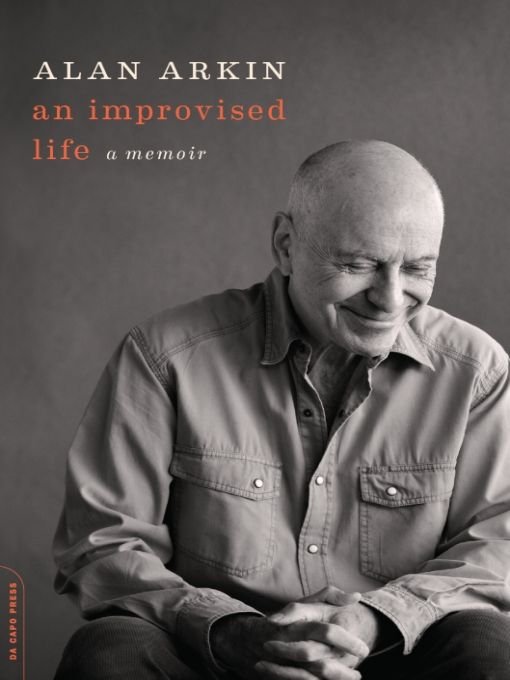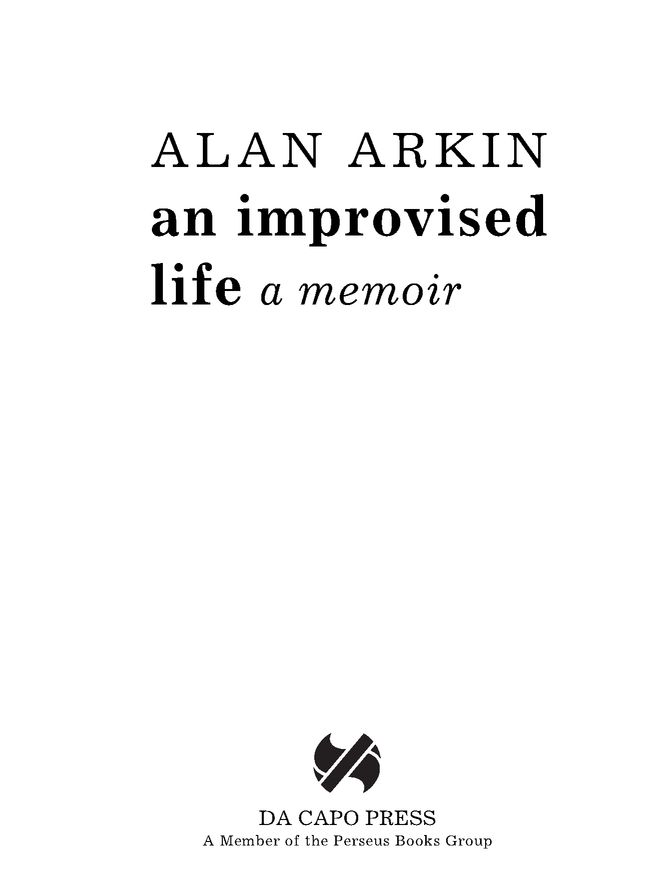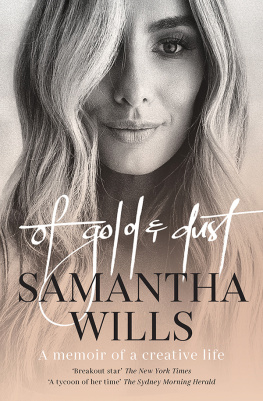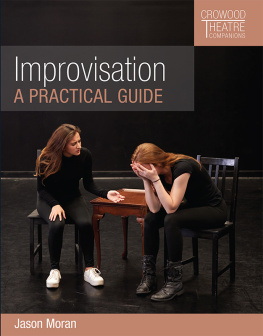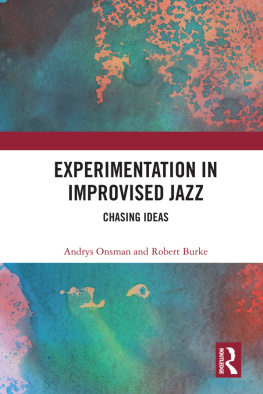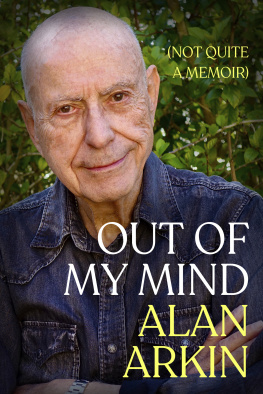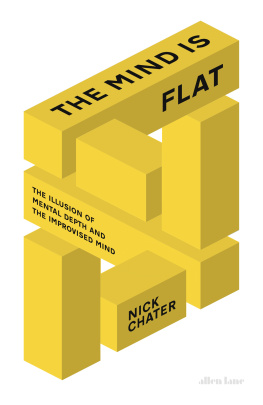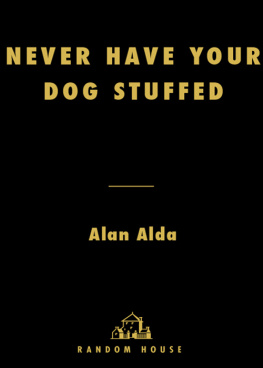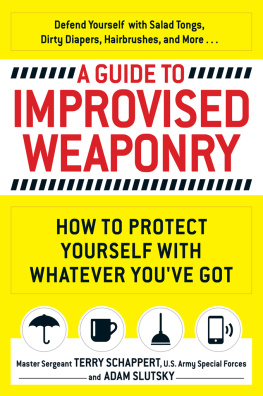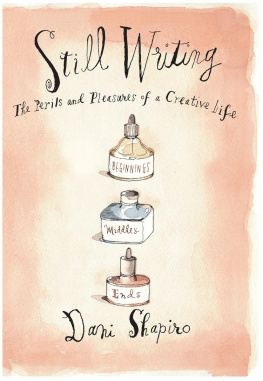Table of Contents
ACKNOWLEDGMENTS
Thanks
To Susan Cohen, my wonderful literary agent who steadfastly refused to let me abandon this project.
To Barry Berg, my editor and now friend, who was endlessly encouraging, supportive and wise and who miraculously made working and reworking this book a joy.
And to my wife, Suzanne, my constant companion, my best friend and my muse. She is also an integral part of the workshops. She organizes them, she takes every one of them and interprets my broken English when I become inarticulate, which is more often than Id like to admit. Her participation in the workshops is endlessly joyous, rooted in the moment, and without dropping character she becomes a perfect litmus paper when someone else in a scene is either playwriting or making jokes. As a result, when shes up there she has an unfailing ability to keep other participants in the reality of a scene. In addition, many comments we get from alumni speak of the joy they feel at the comfortable way we work together. Our collaboration seems to have become an important part of the workshops, and completely unintended. And miracle of miracles, Suzanne has no interest whatsoever in becoming an actress.
PROLOGUE
Some years ago I did a film with Madeline Kahn. A lot of it was shot on location, and one day we found ourselves at a particularly beautiful spot overlooking a panoramic view of the Hudson Valley. During a lull in the shooting, while the cameras were setting up, we went out onto an extensive lawn and sat there for a while, lost in the scenery. While we were musing and chatting, I found myself thinking about Madelines many gifts. She was a fine actress, an excellent pianist; she had an exquisite operatic voice with impeccable technique and she was also a brilliant comedian. I asked her which of her talents she considered to be her primary focus. She thought for a while and couldnt come up with an answer. I dont think shed ever thought about it before. Well, what did you start out wanting to do? I asked. What was your first impulse? Was it acting? She shook her head no, but she didnt seem sure.
Singing?
No.
Playing the piano?
No.
Did you want to be a comedian?
No, not really.
Well, what was the first thing you thought of doing? There had to be something.
Again she tried to thread her way back to her childhood ambitions. I used to listen to a lot of music. She paused, trying to find the words for what she was thinking. And thats what I wanted to be, she finally said.
I dont know what you mean, I said.
She answered, and it sounded as if shed never formulated this thought before, as if it was news to herself.
I wanted to be the music, she said.
It was a revelatory and somewhat disturbing moment. With that one statement I realized that what shed said about herself was the impulse behind all of my own interests, all of my needs, all of my studying, compulsions, and passions, and had I been aware of that idea when I was starting out, had I been able to assimilate it, live within it, I would have saved endless years of frustration and work and confusion because that thought was at the very bottom of what I was looking for. So much had been invested in craft, in externalization, in looking for something solid out there that would fill the void, create a sense of flight, of getting out of the oppression of self.
We dont want to do it; we want to be it. Only we dont know it. No one tells us.
This is dedicated to everyone who wants to be the music.
PART one
CHAPTER ONE
My father said that at the age of five I asked him if he could keep a secret. He said yes he could, so I told him I was going to be an actor when I grew up. At five, acting was already a fever in my blood, and somehow I knew, even then, that the decision was made and there would be no turning back. My father took my declaration with a grain of salt, knowing that children change their minds a dozen times before committing to something. I never changed my mind. My father had dreams of being a painter and a poet; and living with the ache of not having achieved his dreams he was keenly aware of the pitfalls involved in trying to have a career in the arts, so he mostly hoped Id grow out of the idea. But my fate had been sealed before I had any notion of what I was letting myself in for, and my father bit his tongue.
Every film I saw, every play, every piece of music fed an unquenchable need to turn myself into something other than what I was. An aunt took me to see the ballet Petrouchka, and for months I became Stravinskys marionette. I played the music on the phonograph over and over again, dancing every part. I was Petrouchka, the bears, the jugglers, the moor, my fantasy life so intense that I sometimes literally gave myself a fever in the process. The next year I was Louis Hayward in the film The Man in the Iron Mask, fighting, swaggering, swashbuckling, and finally escaping torture at the hands of my evil twin brother. The following year I became Charlie Chaplin. I remember having a temper tantrum when I wasnt allowed to sit through The Great Dictator for the third time, throwing myself on the floor of the movie theater, screaming bloody murder, and creating an embarrassing scene until my babysitter relented and sat back down, a hostage to my obsession. For months I tried to walk like Chaplin. I spent hours in front of a mirror pursing my mouth to the side, trying desperately to smile with that horizontal crease he had in his upper lip. I put on roller skates and swooped precariously on the edge of things. I performed endless imitations of Hitler through the filter of Chaplins genius. Then, the following year, I became Danny Kaye, spending hour after hour in front of a mirror trying in vain to make my eyes turn down at the corners. I threw water on my hair to try and make it shake like his. I tried to scat-sing as fast as he could. Away from the mirror, I imitated anyone and everyone. Outside in the street, if Id see someone with an interesting walk, in half an hour Id made it my own. Any exotic behavior was fair game: a limp, an accent, a nervous tic, anything to turn myself into someone other than me. One day I was playing in the backyard with my cousins and my aunt overheard me say, Lets play circus. Ill be everything.
I grew up in Brooklyn, and every Saturday afternoon, for years, I would drag my reluctant mother to acting classes at the Academy of Music, making her sit in dark, empty hallways while I studied whatever children worked on in those days. I was incorrigible. By age seven or eight I was completely obsessed with performing. Theater, movies, musicI was obsessed by all of them. At school my main activity was staring out the window and daydreaming about being other people in other times, other places. How I got through even grammar school remains a mystery.
I have two important memories from those early years. Both were small events, really, and neither took place in school. But both changed how I thought about theater and acting.
The first occurred when I went to a film with my father. I was around eight years old, but he took me to a movie for grown-ups, in black and white, with a lot of adult talk and not much action. In one scene a couple of actors were in a living room engaged in an intimate, intense dialogue about something or other, and I watched for a while, trying hard to keep up with their situation, which was too sophisticated for me. It was rare that anything on a movie screen ever bored me, but this was starting to do the trick, so to keep myself entertained I pretended I was there with them watching the scene from inside a closet. Where the impulse came from I dont know, but I held a hand up to my face and made a small opening in my fist so I could watch everything through the keyhole of an imaginary door. All of a sudden the acting, which had seemed real enough a moment ago, looked false, and the scene turned stale and lifeless. I was amazed. It was as though a veil had been lifted from my eyes. In an instant, the actors were no longer cinema gods with huge heads, the idols I had been imitating for years. Theyd lost their sense of authority and importance. In fact, at this moment they no longer existed in any reality at all. The scene had instantly turned false, and I had the distinct feeling that the performances of the two people in the scene were no longer directed at each other but toward some anonymous audience. But who is their audience? I wondered. Theres no one in the room with them. They dont know Im here, in the closet. They dont know anyone is watching. Who are they focusing on? Not me. Not any other living soul.

